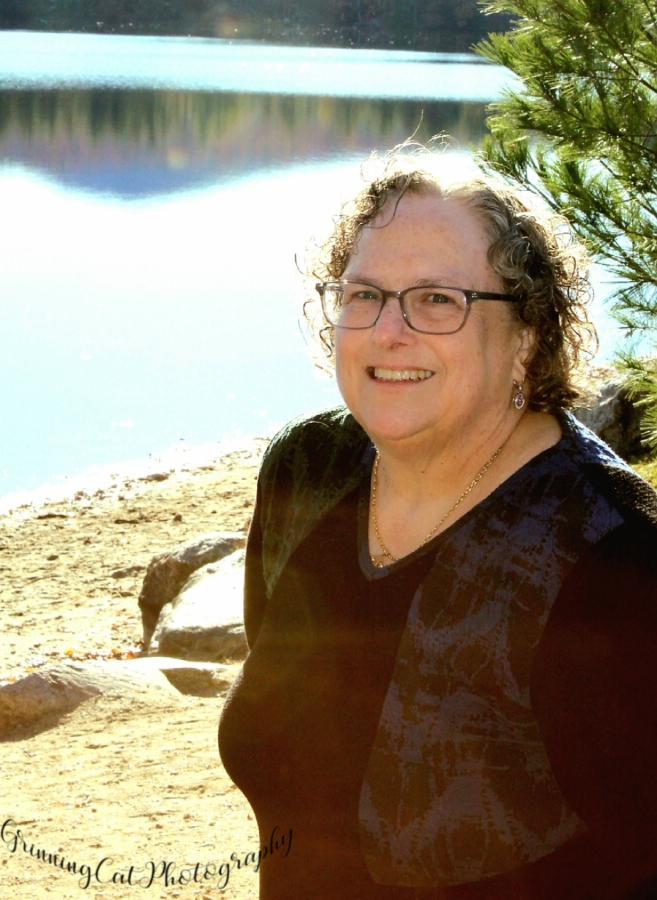Westmont Magazine Baking with the Bible
Have you ever made the connection between pretzels and prayer? Linnae Peterson ’81 smiles as she describes how medieval Christians created the crisscross shape of pretzels to mimic a prayer stance. Baking in the Middle Ages reminded you to pray. Her curriculum, “Baking with the Bible,” includes the history of medieval baking practices and much more. It draws on her passion for designing curricula with a hands-on approach. “We learn best when we use all of ourselves,” she says. “Spirituality is no different. We do best when we engage in everything.”
Westmont grew Linnae’s love for theology and a holistic approach. She spent hours in the Dining Commons with fellow students talking about their perspectives and experiences on different topics. “I learned as much in the Dining Commons as in the classroom,” she says. The same thing happened after chapel on Kerrwood Lawn, where Linnae and her friends would sit and ask the speaker questions. Forty years later, her Westmont friendships remain strong. A group of them met regularly over Zoom during COVID-19. “If a crisis happens at 3 a.m., I can call them, and it’s not a problem,” she says.
Linnae studied political science at Westmont, but many of her friends thought she was a religious studies major. She loved her classes about the Bible and the history of Christianity, and she graduated from Westmont with a burning desire to learn more. She earned a graduate degree in theological studies from Gordon-Cowell Theological Seminary and a Master of Divinity from the University of the South in Sewanee, Tennessee.
Linnae and her husband, Paul, moved to New Hampshire where she worked at Episcopal and Congregational churches. When she accepted a position with a church in Delaware, the family moved there in 2002.
She developed her passion for creating curricula that engage the whole student at the House of Seven Gables Museum in the 1980s and continued engaging students in hands-on learning as a volunteer at her son’s school. She worked with teachers on lessons about the origin of foods around the world. Drawing on her own roots,
she hosted a Swedish feast for the third graders that included pickled herring. To teach fourth graders about immigration, Linnae gave each one a nationality, name and skill. The students role-played traveling through Ellis Island, finding a job and answering citizenship questions.
The family returned to New Hampshire in 2014, and Linnae now works with Episcopal dioceses in New England to support churches with Christian education and formation both online and in person. She incorporates a hands-on component in every curriculum she writes. Paul works as an editor. Her daughter, Hilde, writes for the online multiplayer game Beyond Skyrim and other video game projects, and her son, William, is a senior majoring in sociology at St. Lawrence University in New York.
During the COVID-19 lockdown, Linnae met Kendall Vanderslice, the founder of Edible Theology, through an Episcopal Facebook group. Edible Theology explores the role of food in spiritual formation through workshops, curricula and online resources about the theological depth of food. Kendall wanted to create
a curriculum for kids focused on baking bread. Linnae contacted her and offered to help. They published. “Bake with the Bible: A Six-Week Curriculum on Bread,” in the spring of 2021. Paul edited the program.
The curriculum helps children, teens and adults discover the nearness of God in a tangible way through baking bread. “It’s a way of weaving your faith with your life,” she says. It incorporates scripture passages and “wondering questions” that draw you into the biblical story. For example: How did it feel to be one of the 5,000 and watch everyone be fed?
Lessons touch on the temptations of Jesus, the parable of leaven, the Lord’s Prayer, the feeding the 5,000, Jesus’ last supper and the road to Emmaus. “Recipes help people remember what they’ve learned and practically demonstrate spiritual concepts,” Linnae says.
The two women designed the curriculum to be intergenerational and flexible during the pandemic. Families can follow it at home; churches can offer it in person or pursue a hybrid of the two. Families and churches can complete the curriculum on their own timeline. Linnae has heard from several families who love the program because it involves all ages and focuses on hands-on activities.
Food provides many powerful metaphors for faith. Linnae believes that people learn spiritual ideas best in little bites and practices that engage the whole person. She taught herself to knit by mastering one small stitch at a time and repeating it. She has seen this concept at work in her own spiritual life. She uses social media to provide “little bits of faith” by writing daily meditations for her Facebook page, facebook.com/LinnaeHPeterson.
“We do better learning about faith in small pieces rather than big chunks,” Linnae says. “Instead of trying to eat a feast, you eat the same snack every day for a week and then add something to it the next week. We learn most deeply if we do it repetitively.”
